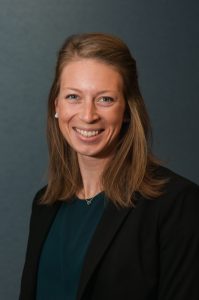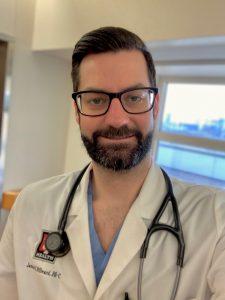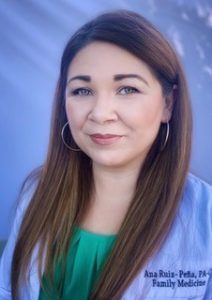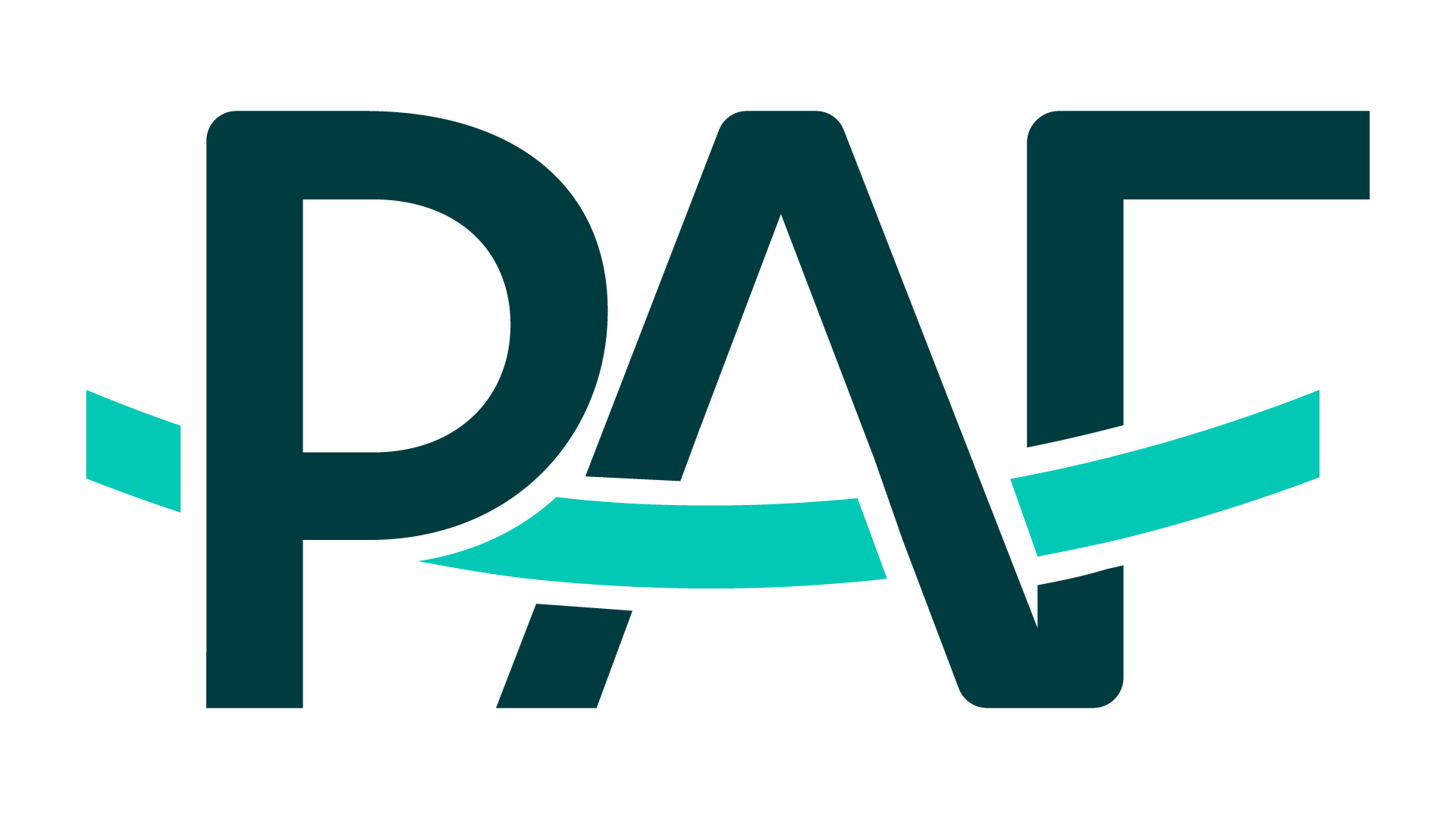What Does Philanthropy Mean to You?
Jacqueline Spiegel, MS, PA-C, DFAAPA, CHSE
December 14, 2021
 The word “philanthropy” is derived from Ancient Greek, meaning “love of humankind.” In a broad sense, it is an active effort to show goodwill to fellow members of the human race and promote human welfare. We commonly think of philanthropy as “an act or gift done or made for humanitarian purposes.”
The word “philanthropy” is derived from Ancient Greek, meaning “love of humankind.” In a broad sense, it is an active effort to show goodwill to fellow members of the human race and promote human welfare. We commonly think of philanthropy as “an act or gift done or made for humanitarian purposes.”
One of the first known philanthropists in American history was Benjamin Franklin, who motivated his fellow Philadelphians to pursue projects for the betterment of the city. Another prominent leader was George Peabody, widely regarded as the father of modern philanthropy, who endowed libraries and museums in the U.S. and funded housing for the poor people of London. His activities became the model for well-known U.S. philanthropists like Andrew Carnegie, John D. Rockefeller, and Anthony Drexel. Then there’s Chuck Feeney, known as the “James Bond of Philanthropy” for giving away his $8 billion fortune in secret and silently impacting the lives of hundreds of thousands of people across the globe.
Philanthropy can come in many forms, from being a committed donor to volunteering to engaging in projects that align with one’s passions. And, in this modern age, we can add being an influencer to the list. So, what does philanthropy mean to you? I sat down with several early career PAs who have actively engaged in one or more of these forms of philanthropy to answer this question.
 Katie Ganser, MSc, MPAS, PA-C, is an Acute Care APP Fellow at Children’s Hospital Colorado. She graduated from the University of Colorado Child Health Associate/PA Program in May 2021.
Katie Ganser, MSc, MPAS, PA-C, is an Acute Care APP Fellow at Children’s Hospital Colorado. She graduated from the University of Colorado Child Health Associate/PA Program in May 2021.
Q: Katie, since being a PA student you have been a loyal donor to the PA Foundation. What aspects of the PA Foundation inspire you to be a consistent, committed donor?
A: I have loved being engaged as a donor to the PA Foundation, engaging in the Women in Philanthropy society, and speaking at a few PA Foundation events throughout PA school! I appreciate the Foundation’s commitment to supporting students through scholarships, grants, and programming and their overall mission of empowering PAs to improve health and serve the community.
Q: Katie, what advice do you have for students or new PAs who are on a very tight budget?
A: As a student, we are constantly asked for monetary donations; while this can often seem overwhelming, I really feel it is important for students and early career PAs to identify the issues they are passionate about and find ways to contribute with time and resources. A $20 donation once a year may seem insignificant, but if we band together to support the causes we care about, it could have a significant impact for the cost of coffee for a week!
 James Braden Millward, DMSc, PA-C, is a cardiothoracic surgery PA at the Indianapolis VA Medical Center. He graduated from Indiana University PA Program in 2017 and received his DMSc from Lynchburg University in 2020.
James Braden Millward, DMSc, PA-C, is a cardiothoracic surgery PA at the Indianapolis VA Medical Center. He graduated from Indiana University PA Program in 2017 and received his DMSc from Lynchburg University in 2020.
Q: You are only four years out from graduation and yet you still find time to serve as a volunteer trustee on the PA Foundation Board and are a generous donor to the PA Foundation. What about philanthropic volunteerism appeals to you?
A: My involvement with philanthropy stems from a belief that our donation of time, money, service, and skills can help create new opportunities for current and future PAs. Our fellow PAs have incredible ideas. Supporting these projects allows me to give back to the profession I love and am proud to be a part of.
Q: One might consider you an influencer in your role as the PA Foundation’s Vital Minds Podcast host. In what ways do you think this valuable resource supports PAs and PA students in their careers?
A: The greatest value I see from Vital Minds is hearing our guests discuss the way medicine is happening right now, managing both common and difficult issues we all encounter in practice, and how it can be improved. The content and advice from fellow experts in their respective fields is invaluable.
 Ana Ruiz-Peña, MHA, PA-C, PhD(c), is a primary care PA in Granada Hills, California, and co-founder of Vida Mobile Clinic, Inc. She graduated from Charles R. Drew University of Medicine and Science, PA Class of 2011.
Ana Ruiz-Peña, MHA, PA-C, PhD(c), is a primary care PA in Granada Hills, California, and co-founder of Vida Mobile Clinic, Inc. She graduated from Charles R. Drew University of Medicine and Science, PA Class of 2011.
Q: You were a recent recipient of the William H. Marquardt Community Health Access Fellowship. Tell me why pursuing project-based philanthropy is important to you.
A: I was very lucky in that many people helped me along my journey to becoming a PA. Because of that, I always told myself that I would pay it forward. I believe in giving back to underserved, under-resourced communities by providing mentorship to students and medical services to uninsured individuals.
Q: What advice do you have for PA students and early career PAs on taking advantage of grants and fellowships offered by the PA Foundation?
A: We are all capable of making change happen in our communities and in our profession. It’s important to look at how the Foundation aligns with your personal healthcare passion and inquire about funding opportunities. The PA Foundation is a wonderful organization that gives PAs like me the opportunity to do this work. If you have an idea, start it. Others will believe in your mission and will want to help. If someone tells you no, try again.
Katie, James, and Ana are proof that we can each make a difference in this world through engagement in philanthropy. As PAs we are fortunate to have our own philanthropy, which can open many doors – for you, for those you support, and for our patients. It gives us the opportunity to be agents of change and positively impact our community and our profession. For most of us, dedicating ourselves to a cause greater than our own interests and stepping outside our day-to-day practice brings about a sense of joy and satisfaction. So I encourage you to ask yourself, “what does philanthropy mean to me?” Find your personal answer and start a journey to “love humankind.”

